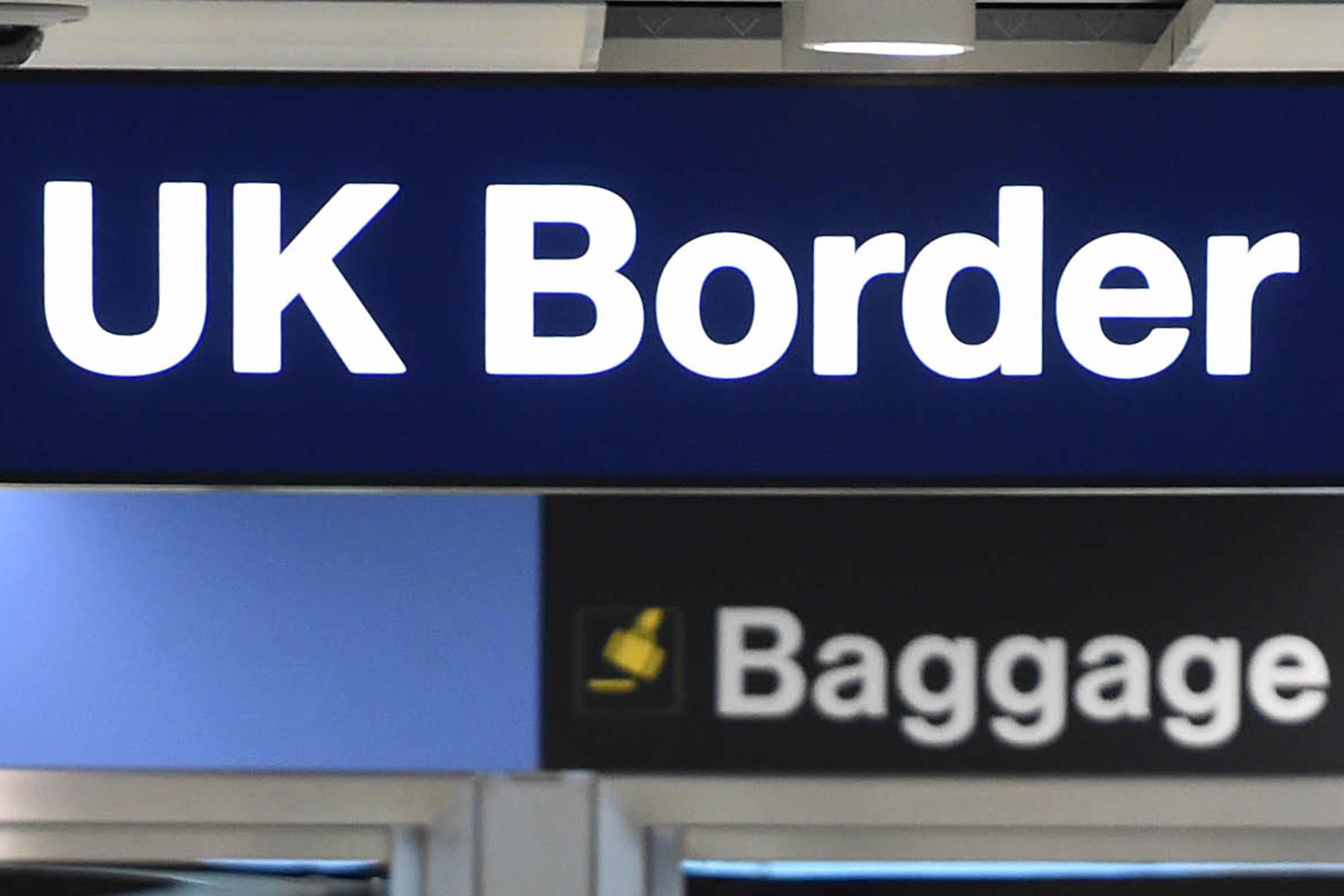Millions of people with physical immigration documents invited to switch to electronic visa
Rollout comes after Home Office immigration database errors mixed up peoples’ identities
Your support helps us to tell the story
From reproductive rights to climate change to Big Tech, The Independent is on the ground when the story is developing. Whether it's investigating the financials of Elon Musk's pro-Trump PAC or producing our latest documentary, 'The A Word', which shines a light on the American women fighting for reproductive rights, we know how important it is to parse out the facts from the messaging.
At such a critical moment in US history, we need reporters on the ground. Your donation allows us to keep sending journalists to speak to both sides of the story.
The Independent is trusted by Americans across the entire political spectrum. And unlike many other quality news outlets, we choose not to lock Americans out of our reporting and analysis with paywalls. We believe quality journalism should be available to everyone, paid for by those who can afford it.
Your support makes all the difference.Millions of people in the UK with physical immigration documents are being invited to switch to an eVisa as the government aims for a fully digital immigration and border system by 2025.
From 17 April, individuals in the UK with physical immigration documents will receive an email from the Home Office, inviting them to create a UK visas and immigration (UKVI) account to access their eVisa.
The rollout of digital status is the next stage in the government’s plan to digitalise the immigration system.
Physical documents will be gradually phased out and nearly all visa holders living in the UK will have access to an eVisa by 2025, the Home Office has said.
The electronic rollout comes after it was revealed that flaws with the Home Office immigration database have resulted in tens of thousands of people being listed with incorrect names, photographs or immigration status.
Documents seen by The Guardian show that the department is struggling with problems with “merged identities”, where two or more people have their details linked incorrectly.
The Independent has previously reported on the case of a Yemeni family living in the UK who were repeatedly sent an ID card bearing a strange man’s photo, in the place of the mother’s photo.
The Home Office is also currently fighting in the High Court against issuing migrants living in the UK with a physical document when they are waiting on an application to extend their stay.
Healthcare workers and severly disabled people are among thousands who are being wrongly stripped of work and benefits because they do not have a physical document to prove their legal status.
Foreign nationals on “leave to remain” have to renew their status every few years, and while they wait for a decision, they are put on “3C leave”.
This is meant to protect the rights they have to work, study or claim benefits, but it leaves them without a physical document confirming their status – something many employers insist on seeing.
Speaking about the eVisa rollout, Tom Pursglove, the minister for legal migration and the border, said replacing physical documents, called biometric residence permits, with a digital system “will ensure firm control over who comes here to live, work or study”.

Mr Pursglove added: “We’ve already taken really significant steps to digitally transform the border and immigration system, and this wider rollout of eVisas is a key part of that process.
“Replacing physical immigration documents with eVisas will ensure firm control over who comes here to live, work or study, strengthening border security and preventing abuse of the immigration system, while delivering cost-savings for UK taxpayers.”
The government hopes the introduction of eVisas will reduce the risk of fraud, loss and abuse of physical documents and strengthen border security.
Those who inspect immigration status will be able to conduct one check using an online service and visa customers will be able to access their digital status anywhere and in real time.
An eVisa is linked with the holder’s biometric information to protect against identity fraud. Invitations will initially be issued in phases.
The process will open to anyone in the UK who holds physical immigration documents in summer 2024. Customers will be able to create a free UKVI account to access their eVisa.
Creating an account will not change, impact or remove their current immigration status or their rights in the UK.

Join our commenting forum
Join thought-provoking conversations, follow other Independent readers and see their replies
Comments